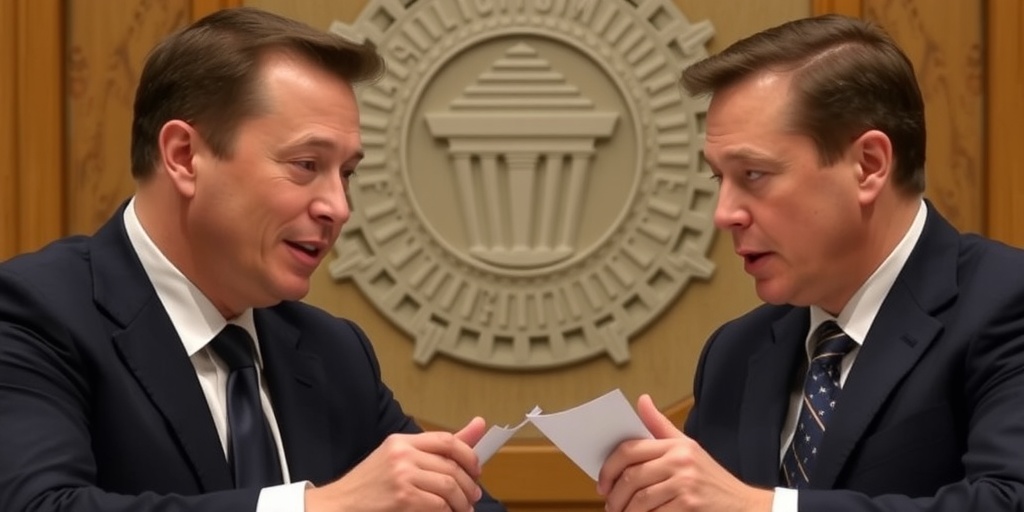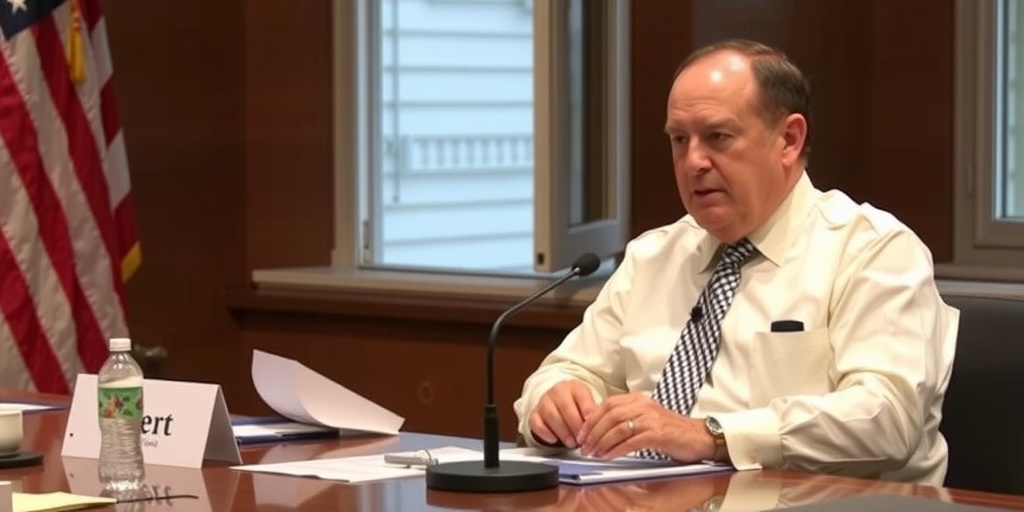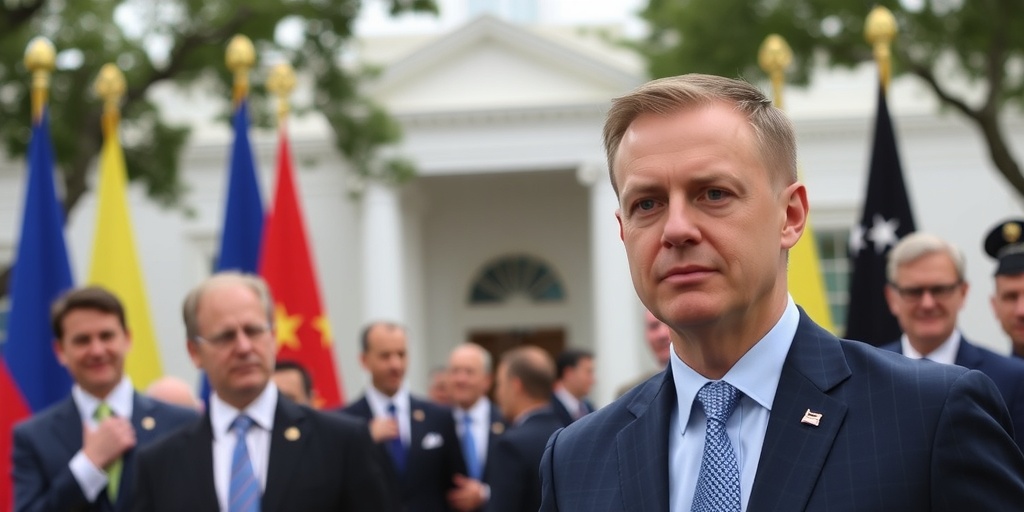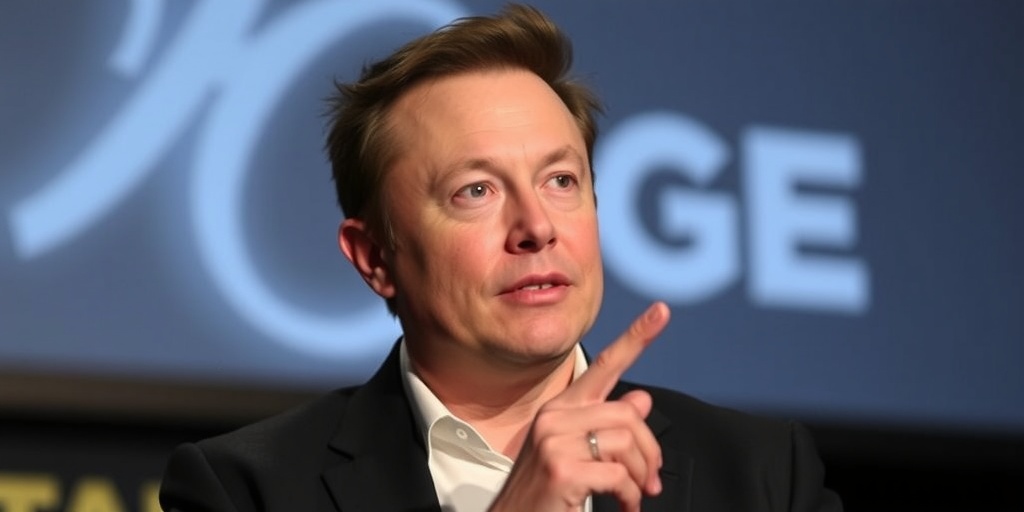Now Reading: Judge Questions Claims That Musk Isn’t Behind DOGE
-
01
Judge Questions Claims That Musk Isn’t Behind DOGE
Judge Questions Claims That Musk Isn’t Behind DOGE

Federal Judge Questions Elon Musk’s Involvement with Government Task Force
In a notable court hearing on Friday, U.S. District Judge Theodore D. Chuang expressed skepticism regarding the Trump administration’s claims that Elon Musk lacks a formal role in overseeing the Department of Government Efficiency, a task force involved in significant layoffs within federal agencies. Judge Chuang characterized the government’s assertions as “factually inaccurate,” questioning the apparent ambiguity surrounding Musk’s influence on an initiative that has led to mass firings of federal employees and has raised concerns over the future of the nation’s foreign aid agency.
The Department of Government Efficiency, or the U.S. DOGE Service, is at the center of a legal battle that challenges its constitutionality. The judge sought clarity from government attorneys regarding Musk’s involvement in the task force, particularly in light of evidence suggesting his driving role in various Federal initiatives. Until recently, government representatives had been evasive about who was truly in charge of the task force, stating only that Musk was not directly involved. This week, an announcement was made that Amy Gleason, a former healthcare investment executive, would act as the administrator.
During the hearing, Justice Department lawyer Joshua E. Gardner reiterated that Musk had no role within the Department of Government Efficiency. This assertion appeared contradictory to revelations that an email, which mandated federal employees submit a weekly report of accomplishments, had been suggested and approved by Musk. The email was processed by the Office of Personnel Management, raising further questions about Musk’s involvement and authority.
Judge Chuang pressed Gardner on the leadership of the task force prior to Gleason’s designation, only to receive uncertain responses. This lack of clarity led the judge to express his suspicion about the absence of clear answers regarding who was managing the agency. The legal proceedings are part of a broader lawsuit filed in February, representing 26 unnamed current and former employees of the U.S. Agency for International Development (USAID). The agency has faced rapid reductions in its workforce since the Trump administration took office, with hundreds of employees dismissed recently, leading to operational turmoil.
Plaintiffs’ attorneys argue that Musk’s activities constitute a violation of constitutional provisions, as his role has not been sanctioned by presidential appointment nor approved by the Senate, as required by the Appointments Clause. Norm Eisen, one of the attorneys representing the plaintiffs, emphasized Musk’s unprecedented influence, claiming he operates as one of the most powerful officials in the government, comparable only to the president. Eisen asserted that Musk’s authority exceeds that of traditional figures in the executive branch, thus raising critical issues about the separation of powers.
Co-counsel Mimi Marziani labeled Musk’s position as a "made-up super-agency," indicating concerns over the administrative realities of the task force’s operations. Legal filings related to various lawsuits offer limited insights into the Department of Government Efficiency, revealing a picture of tightly controlled interactions where small groups of employees engage in data collection, seemingly in pursuit of politically driven objectives.
In response to Gardner’s claims that the Department of Government Efficiency aimed only to reorganize USAID, Judge Chuang referred to a letter from Secretary of State Marco Rubio stating he had taken over as acting administrator of USAID and indicated that the agency might be abolished under applicable laws. The judge underscored the gravity of past statements made by Musk, likening government operations to being sent "into the wood chipper," referencing a specific social media post in which Musk had alluded to dismantling USAID extensively.
The hearing highlighted Musk’s extensive involvement in federal agency matters and precipitated requests from plaintiffs to restrict DOGE from accessing USAID data and systems. This appeal correlated with claims of "physical and psychological harm" experienced by some of the plaintiffs, who had missed crucial payments and access to essential services during an ongoing transition at the agency.
Although the judge did not issue an immediate ruling on Friday, the proceedings signify a critical juncture in the ongoing challenges against the Trump administration’s restructuring efforts within federal agencies. As the matters unfold, both the purity of the judicial inquiry and the implications of Musk’s unprecedented role in government operations remain under scrutiny for their potential impacts on federal governance and constitutional law.
Stay Informed With the Latest & Most Important News
Previous Post
Next Post
-
 01New technology breakthrough has everyone talking right now
01New technology breakthrough has everyone talking right now -
 02Unbelievable life hack everyone needs to try today
02Unbelievable life hack everyone needs to try today -
 03Fascinating discovery found buried deep beneath the ocean
03Fascinating discovery found buried deep beneath the ocean -
 04Man invents genius device that solves everyday problems
04Man invents genius device that solves everyday problems -
 05Shocking discovery that changes what we know forever
05Shocking discovery that changes what we know forever -
 06Internet goes wild over celebrity’s unexpected fashion choice
06Internet goes wild over celebrity’s unexpected fashion choice -
 07Rare animal sighting stuns scientists and wildlife lovers
07Rare animal sighting stuns scientists and wildlife lovers





















